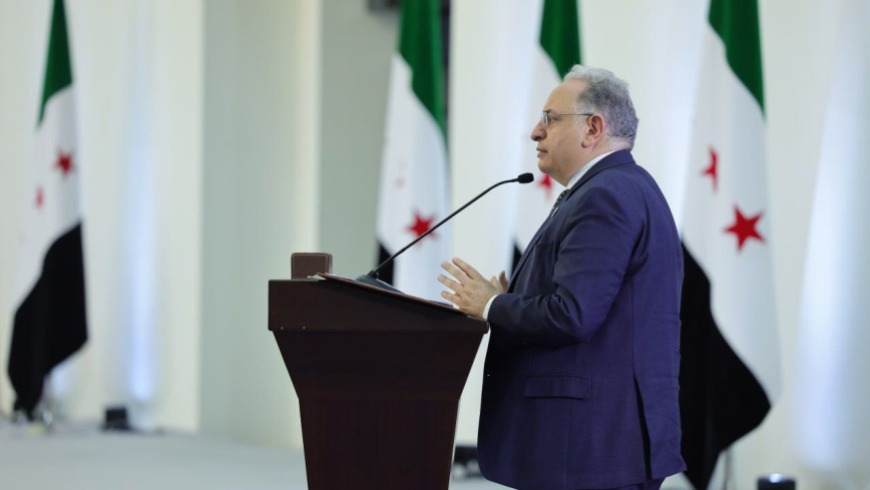As Syria embarks on a pivotal transition following the fall of the Assad regime, the new interim government is placing its economic recovery in the hands of three seasoned technocrats: Nidal al-Shaar, Mohammad Yusr Barnieh, and Badr Yaarub. With backgrounds spanning international finance, academic research, and infrastructure planning, these ministers are tasked with rebuilding not just a shattered economy, but public trust in governance itself.
Nidal al-Shaar: A Global Economist Returns Home
Appointed Minister of Economy, Dr. Nidal al-Shaar brings a world-class pedigree and decades of economic insight to a nation in dire need of both. A George Washington University alumnus with a PhD in monetary and international economics, al-Shaar has worked across leading global institutions, including the World Bank, Fannie Mae, and the Dutch stock exchange. His influence once earned him a spot among the world’s 500 most influential Muslims for 11 consecutive years.
Shaar previously served as Syria’s Minister of Economy and Trade in 2011 during a politically volatile moment. His return signals a strategic bet on technocratic expertise and international engagement. His background in Islamic finance, development consulting, and investment promotion is expected to inform efforts to revive exports, restore business confidence, and attract foreign investment.
While his track record is impressive, his greatest challenge lies ahead: steering Syria’s fragmented economy toward stability while rebuilding decimated infrastructure and unlocking international aid in a politically uncertain environment.
Mohammad Yusr Barnieh: Architect of Financial Reform
As Minister of Finance, Dr. Mohammad Yusr Barnieh enters the spotlight as one of the most experienced Syrian technocrats of his generation. With academic roots in Damascus and advanced degrees from the University of Kansas, Barnieh honed his expertise at the Arab Monetary Fund and trained at the Federal Reserve Bank of New York.
Between 2004 and 2007, he played a foundational role in shaping Syria’s financial system—co-founding both the Syrian Securities and Financial Markets Commission and the Damascus Stock Exchange. His leadership roles at the regional level, including as Secretary-General of the Council of Arab Finance Ministers, have solidified his reputation as a reformer.
Barnieh has laid out a bold vision for fiscal renewal: revamping tax systems, improving wage structures, and enhancing statistical transparency. His policy platform also includes reducing fiscal burdens on citizens while tightening regulatory oversight to tackle tax evasion. Yet translating these ambitions into action will require not only technocratic know-how but also political consensus—something in short supply in Syria’s fractured postwar landscape.
Badr Yaarub: Reconstructing Syria’s Arteries
In a nod to continuity and institutional memory, the interim government has reappointed Dr. Badr Yaarub as Minister of Transport—a role he previously held from 2006 to 2011. With a PhD in transportation science from the École nationale des ponts et chaussées in Paris, Yaarub is regarded as a quiet but capable technocrat. His career has oscillated between academic research and public administration, including advisory roles in regional logistics for the United Nations Economic and Social Commission for Western Asia (ESCWA).
His return comes at a time when Syria’s transportation sector is in tatters: war-damaged highways, inoperable railways, and idle airports remain in desperate need of rehabilitation. Yaarub’s challenge will be to navigate a politically and economically sensitive environment while coordinating large-scale infrastructure recovery plans, securing donor funding, and upgrading logistics standards to reintegrate Syria into regional trade networks.
A Trio of Hope or a Test of Will?
The appointment of Shaar, Barnieh, and Yaarub reflects the interim government’s strategic pivot toward seasoned, internationally respected figures in hopes of reviving a broken economy. These men are not party loyalists or ideological placeholders; they are technocrats with decades of relevant experience. Yet success will depend on more than individual merit; it will require policy cohesion, institutional capacity, and public support—all of which are fragile in a country emerging from years of conflict and isolation.
Still, in a region where political appointments often prioritise loyalty over competence, the rise of this economic trio is notable. They represent not just a shift in leadership, but a potential change in political culture—one grounded in merit, reform, and global engagement.
Whether they can transform vision into viability remains to be seen. But for the first time in years, Syrians—and international partners—have cause to watch with cautious optimism.
This article was translated and edited by The Syrian Observer. The Syrian Observer has not verified the content of this story. Responsibility for the information and views set out in this article lies entirely with the author.


